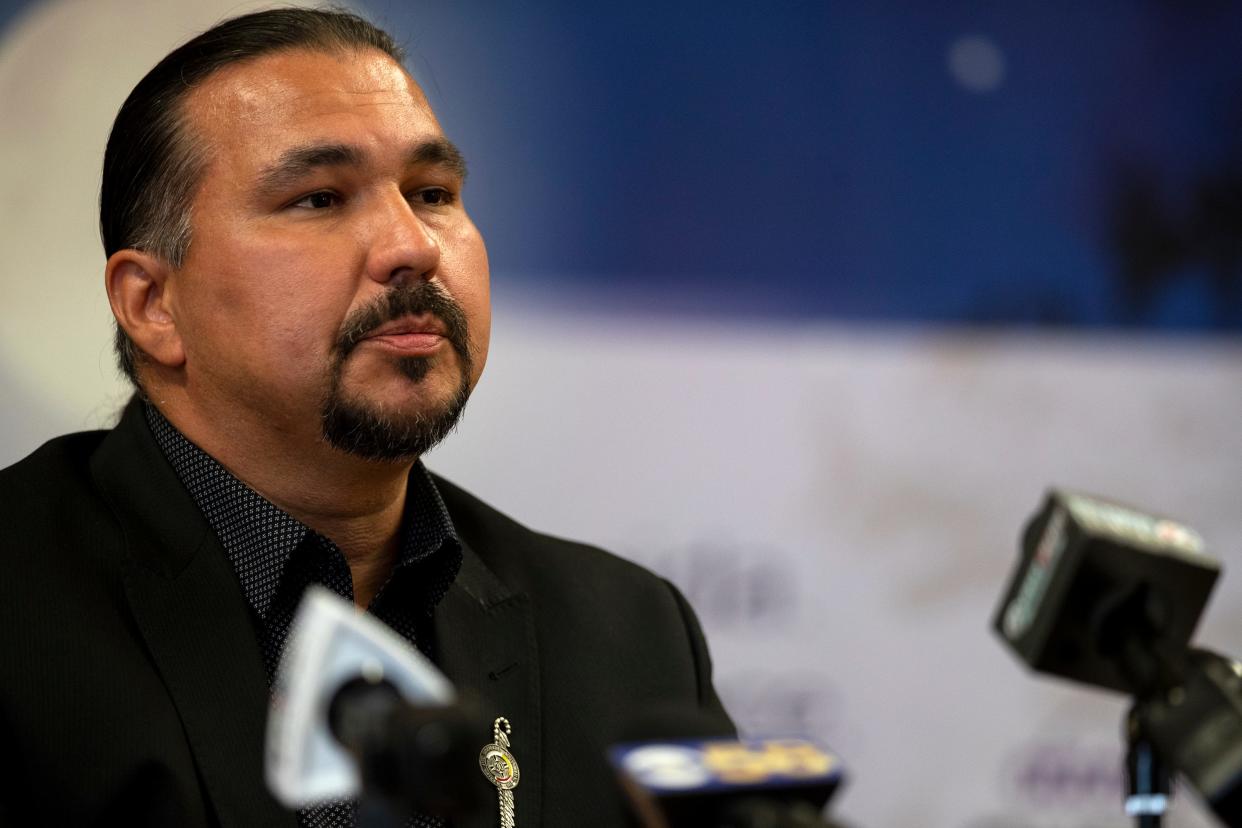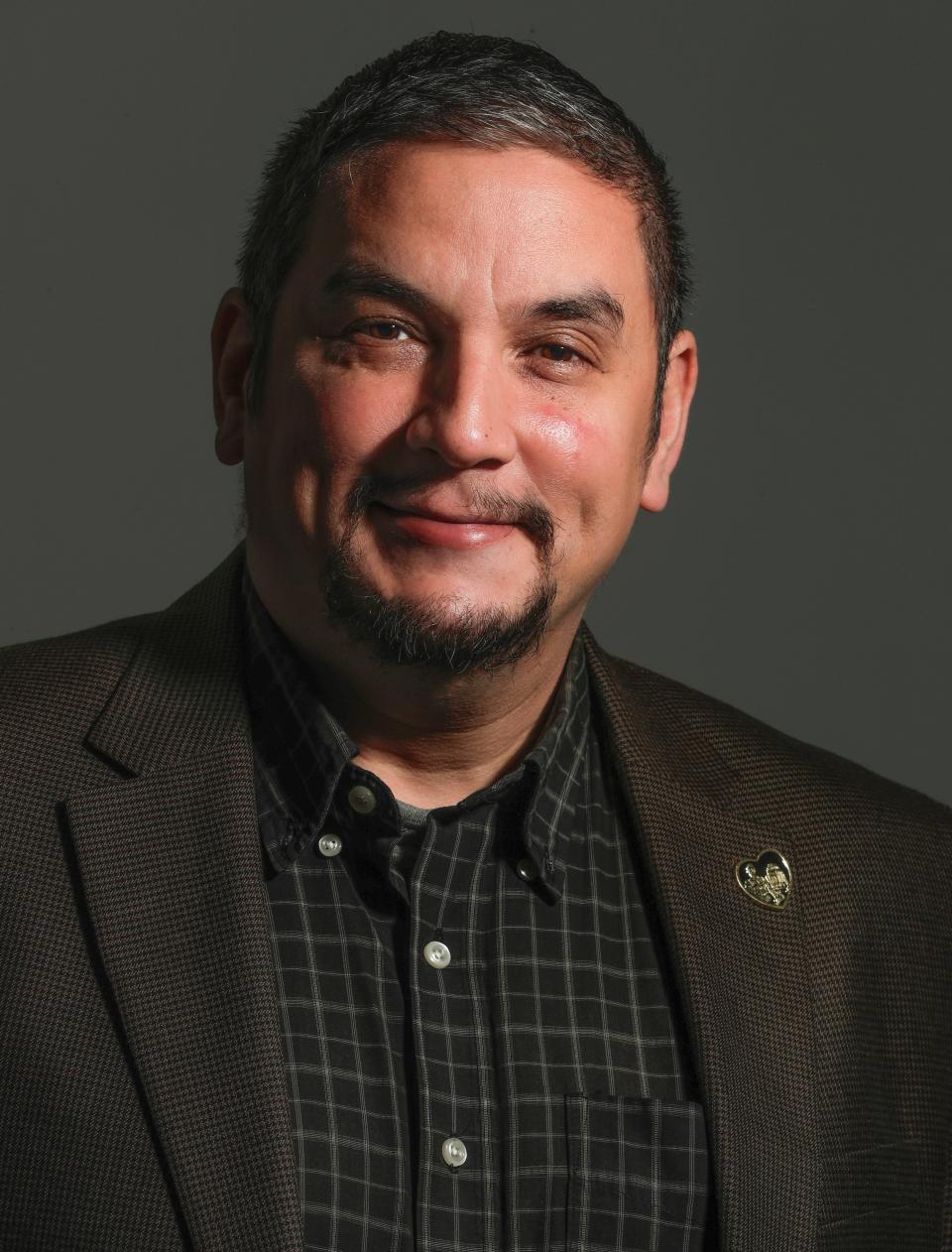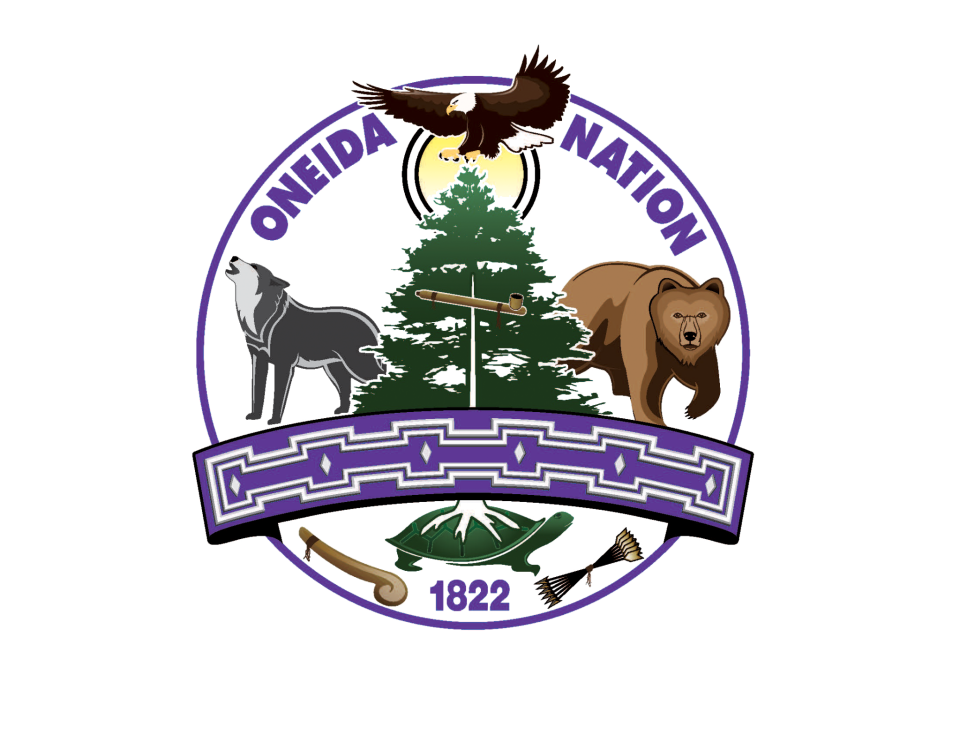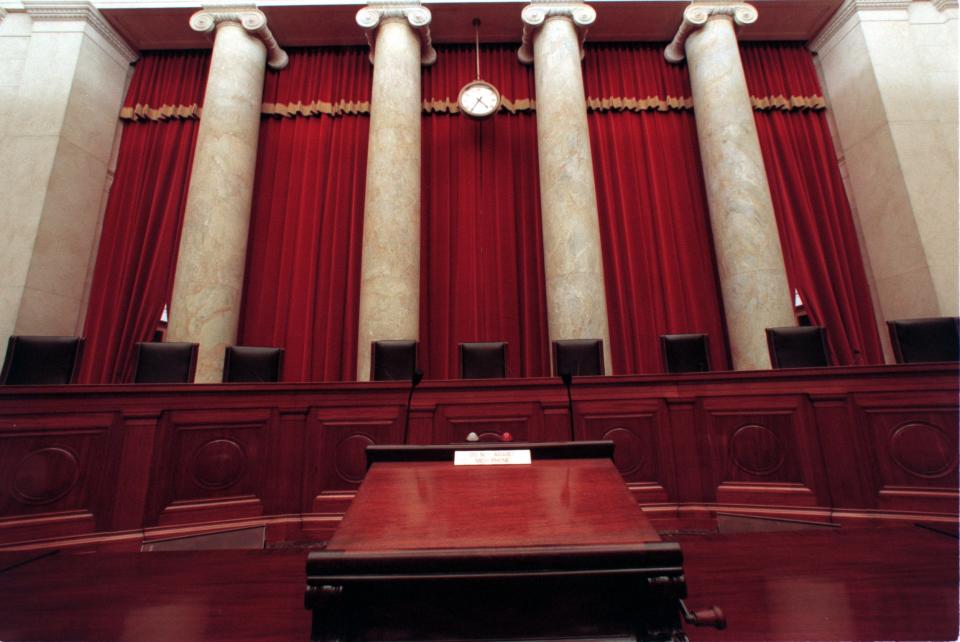Oneida Nation steps in to defend Indian Child Welfare Act in US Supreme Court case

ONEIDA - Tribal leaders in Wisconsin worry a pending U.S. Supreme Court case could set back efforts to protect Native children from unnecessary removals and even have far-reaching implications for federal Indian law.
The case, which is set for oral arguments in November, challenges the constitutionality of the Indian Child Welfare Act, commonly known as ICWA.
The law was enacted by Congress in 1978 to address the disproportionate rates at which Native children were removed from their homes by public and private agencies and placed in institutions or with non-Native families.
A survey by the Association on American Indian Affairs in 1973 found that 545 of the 7,266 children in foster care in Wisconsin — or 7.5% — were Native American, even though Natives only made up about 0.5% of people younger than 21 years old, according to Census figures. Some states, namely Minnesota, have an even worse record of putting young Natives in foster care or other out-of-home placements.
Today, the reality hasn't changed much. About 520 of the nearly 6,600 children in foster care, groups homes or other out-of-home care in Wisconsin are identified as Native Americans, according to data from the Wisconsin Department of Children and Families. That means Natives make up about 8% of children in foster case, even though they only make up about 1% of the population.
Those challenging ICWA argue it unfairly disadvantages non-Native adoptive parents and that the prioritization of Native families when placing Native children amounts to racial discrimination.
The U.S. government and the tribes say the law makes a political, not a racial, distinction upheld by courts for decades, as ICWA applies to children who are members of a tribe or eligible for membership.
Five tribal nations are intervening in the case
Oneida Nation is one of five tribal nations in the country intervening in the case on the side of the U.S. government to defend the 44-year-old law, which they call "central to our sovereign interests in protecting our children."
They called on the court to uphold ICWA.
"To do otherwise, the court would be ignoring decades of precedent, overriding Congressional authority and putting our tribal children's safety at risk," Oneida Nation Chairman Tehassi Hill said in a joint statement with leaders of the other intervening tribes.
The four other tribes intervening in the case are the Navajo, Cherokee and Quinault Indian nations and the Morongo Band of Mission Indians.
In addition, 497 other tribal nations signed on to an amicus, or friend-of-the-court, brief last month in support of ICWA, including the 10 other federally recognized tribes in Wisconsin.
The law requires that tribes be given the opportunity to intervene when state courts begin child welfare proceedings involving a child enrolled in that tribe or eligible for enrollment. The law also requires preference for Indigenous children to be placed within their extended families or with other tribal members, if possible, during adoption proceedings.
The law also recognizes tribal sovereignty by presuming that tribal courts are in the best position to make decisions regarding the interests of Indigenous children.

Sign up for the First Nations Wisconsin newsletter Click here to get all of our Indigenous news coverage right in your inbox
The state of Texas and residents Chad and Jennifer Brackeen sued the U.S. government in 2017 after the Brackeens' adoption request for a child they had fostered for more than a year was initially denied. The child was eligible for citizenship in the Navajo Nation, which had found a potential Navajo family for the child in New Mexico. The Brackeens ultimately were allowed to adopt the child.
Other challengers include two couples from Minnesota and Nevada who sought to adopt Native American children — Jason and Danielle Clifford, and Nick and Heather Libretti — and the biological mother of the Native child whom the Librettis ultimately adopted with her support.
The adoptions were either denied or delayed when tribes intervened to try to find relatives or other tribal members to place the children with.
The challengers argue ICWA violates the Constitution's equal protection component by treating children who are tribal members or eligible for membership differently than other children.
In its brief, lawyers for Texas called tribal membership a "proxy" for race. They also argued that Congress did not have the authority to enact ICWA and that it unlawfully "commandeers" state courts by telling them how to conduct child welfare proceedings.
U.S., tribes say the distinction is political, not racial
Lawyers for the U.S. government and the intervening tribes say that argument is flawed and that the distinction between a Native and a non-Native child is a political, not a racial, classification, and is tied to the United States' responsibility to protect Native tribes. In one of their briefs, they pointed out that an entire title of the U.S. code is captioned "Indians" and that many laws ranging in subject from education to health care to religion to public lands distinguish between "Indians" and all others.
Oneida Nation has been involved in the case since 2018, intervening shortly after the suit was filed in a federal court in Texas. Though none of the children directly involved in the case was an Oneida member, the case had implications for all tribal nations.
"When Texas first brought this case, which involved Navajo, Cherokee and Ojibwe children, it was apparent that this was an existential challenge to ICWA and much of Indian law. ... Without Oneida and those other tribes, who expended incredible resources to mount a defense, ICWA likely would have been lost years ago," said Matthew Fletcher, professor of law at the University of Michigan.

Tribal officials concerned after court ruling on sovereignty
Some tribal officials are concerned with the recent conservative leaning of the U.S. Supreme Court, especially after a decision this year delivered a blow to tribal sovereignty in another case.
In Oklahoma v. Castro-Huerta, the Supreme Court sided with the state in a 5-4 ruling that state courts may hear cases involving non-Natives accused of crimes against Native Americans occurring on reservations rather than only being handled by federal courts.
Justice Brett Kavanaugh wrote the majority opinion, stating that “Indian Country is part of a state, not separate from a state.”
In his dissent, Justice Neil Gorsuch wrote: "Tribes are not private organizations within state boundaries. Their reservations are not glorified private campgrounds. … Tribal sovereignty means that the criminal laws of the states ‘can have no force’ on tribal members within tribal bounds unless and until Congress clearly ordains otherwise.”

In Wisconsin, that ruling might only affect the Menominee Nation because the state already exercises criminal jurisdiction for the other 10 federally recognized tribes in the state.
Wisconsin, like several other states, has adopted its own version of ICWA that, depending on how the Supreme Court rules, could remain in place, even if the federal law is struck down in whole or part, legal experts said.
For example, if parts of ICWA were struck down based on the commandeering argument, state versions of the law would stand, legal experts said.
However, if ICWA were overturned based on the racial argument, Indian law experts say, it could have a huge impact across the country, not only on Indian child welfare.
RELATED: US Supreme Court to hear Brackeen v. Haaland, a case challenging Indian Child Welfare Act
"Haaland v. Brackeen is probably the biggest case to hit the Supreme Court in decades," Fletcher said. "If Texas and the Brackeens win, much of the foundation of federal Indian law will be shaken to its core."
Depending on how the court rules, Fletcher said it could have major implications for criminal jurisdiction in Indian Country, environmental protections on reservations, even Congress' power to implement and enforce treaty rights.
"The potential for that equal protection argument, that racial argument to undermine the entire framework of federal Indian law is just incalculable," said Dan Lewerenz, an assistant law professor at the University of North Dakota and member of the Iowa Tribe of Kansas and Nebraska.
Frank Vaisvilas is a Report For America corps member based at the Green Bay Press-Gazette covering Native American issues in Wisconsin. He can be reached at 815-260-2262 or fvaisvilas@gannett.com, or on Twitter at @vaisvilas_frank. Please consider supporting journalism that informs our democracy with a tax-deductible gift to this reporting effort at GreenBayPressGazette.com/RFA.
This article originally appeared on Green Bay Press-Gazette: Indian Child Welfare Act goes before US Supreme Court; Oneida weigh in

